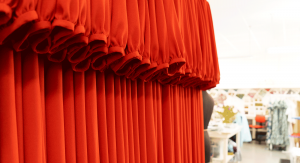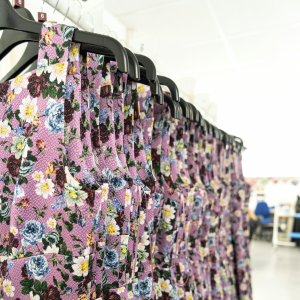Want to know how to make your fashion business one of the UK’s most ethical clothing brands? Then you need to start by looking at the global supply chains that feed fashion.
Fashion supply chains are complex. Competition, changing consumer habits and rising costs all put pressure on retailers and designers. To make efficiency savings and increase profits, the first place they often look is their supply chain.
Fashion’s global supply chain
Fashion is a global business. A garment sitting in your customer’s wardrobe might have been manufactured in Turkey using Indian cotton and buttons from China. It may then have been shipped to the U.S. to be packaged and then posted to a customer in Europe.
Retailers (both large and small) and many designers look worldwide to find either the cheapest labour or specialist expertise. Many British fashion brands don’t even consider using British garment manufacturers, but look to save money by going abroad.
This might make sense in terms of the bottom line, but it causes a huge problem for any fashion brand wanting to call themselves ethical. Many countries impose little or no regulation on working conditions in their garment factories, meaning it’s impossible to guarantee supply chain transparency.
Consumer awareness of ethical fashion
There was a time when few people gave much thought to where or how their clothes were made. That changed in the 1990s.
Naomi Klein’s book No Logo was published in 1999, and suddenly consumers were learning about sweatshops and child labour. They forced brands to investigate and respond. Nike and Levi Strauss were two of the first to do so, developing and publishing codes of conduct for their own supply chains.
And where those big fashion brands go, smaller brands have now followed, becoming some of the most ethical clothing brands around.
Ethical fashion supply chains: what you need to think about
Pay and conditions
In countries such as Bangladesh, Turkey and Malaysia, garment workers can easily be working 12-hour days, if not more. Seven day weeks are common in busy periods.
The desire for inexpensive fast fashion puts pressure on the whole supply chain, with those at the bottom feeling that pressure most strongly. Even in countries that have a minimum wage, it’s often not a real living wage and not enough to support a family.
Subcontracting
The subcontracting of garment production is common. Orders are often made last minute and factories, rather than turn down the work, subcontract it to smaller suppliers. But even if the factory itself meets basic standards for pay and conditions, their subcontractors may not. Some factories will even use homeworkers to take on last minute orders. Others will deliberately subcontract work that can’t be completed within their own safety guidelines.
Environmental concerns
The fashion and textile industry isn’t always thought of as a source of pollution, but it is. Cotton production uses more pesticides and fertilisers than any other industry. Waste dye contaminates waterways. Some governments regulate the industry to try and reduce this pollution, but not all. And of course, however the fabric that makes them is produced, there can be a lot of air or sea miles involved in exporting garments.
What to do to become one of the most ethical fashion brands?
There are three key things you can do to become a more ethical brand, with an ethical supply chain.
- Look for overseas manufacturers certified by an independent third party. The Fair Labor Association is a good place to start.
- Use a UK garment manufacturer. UK factories nearly always have high safety and welfare standards. Most will let you visit, and if they don’t, see that as a red flag.
- Manage your own production. If you have the resources, setting up your own factory will guarantee an ethical supply chain, though this is rarely an option for new and smaller brands.
We are an ethical clothing brand, with an experienced, well-rewarded team and good working conditions. You’re welcome to visit us any time.
Follow this link to book a complimentary discovery phone call with us.




